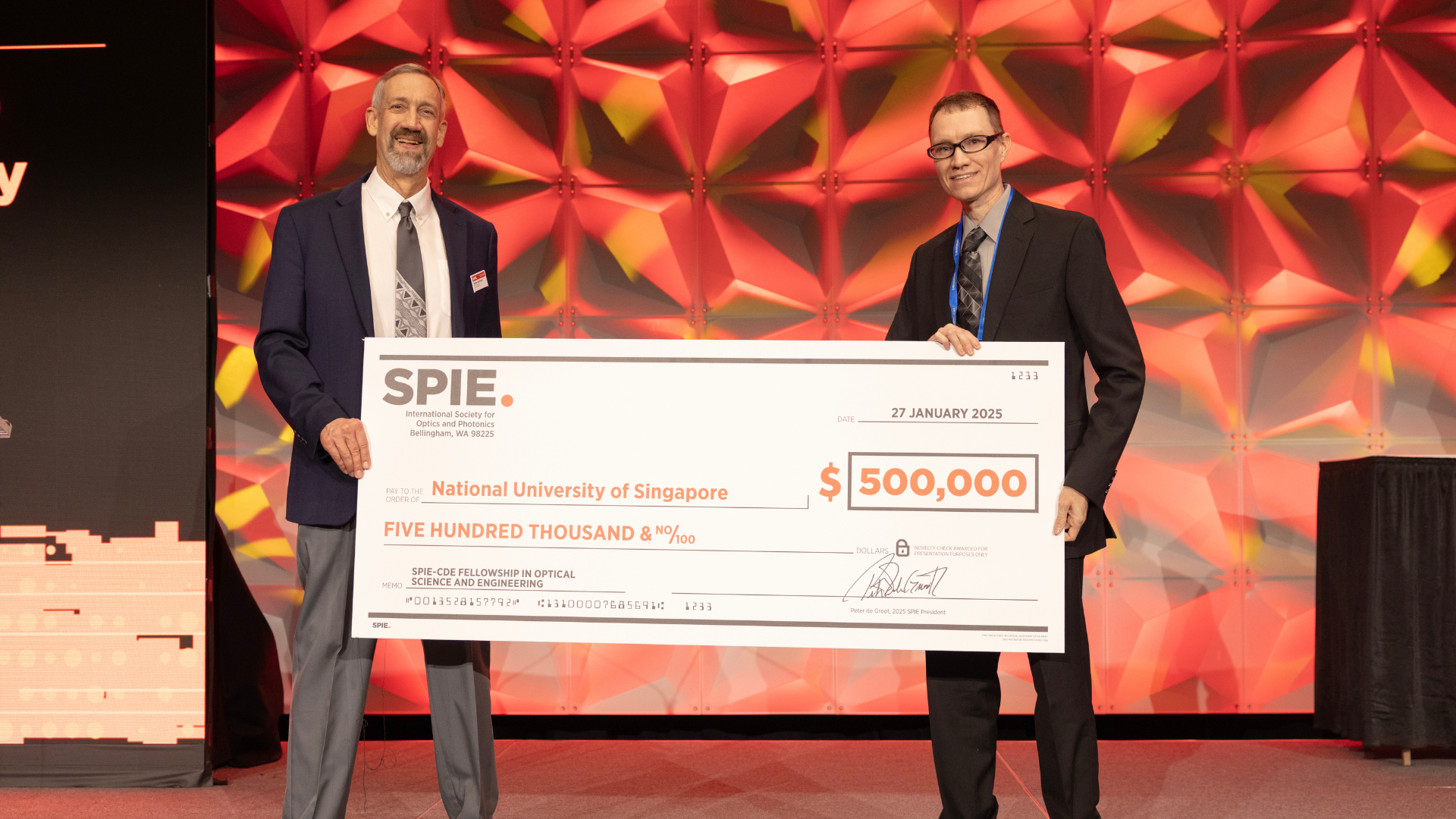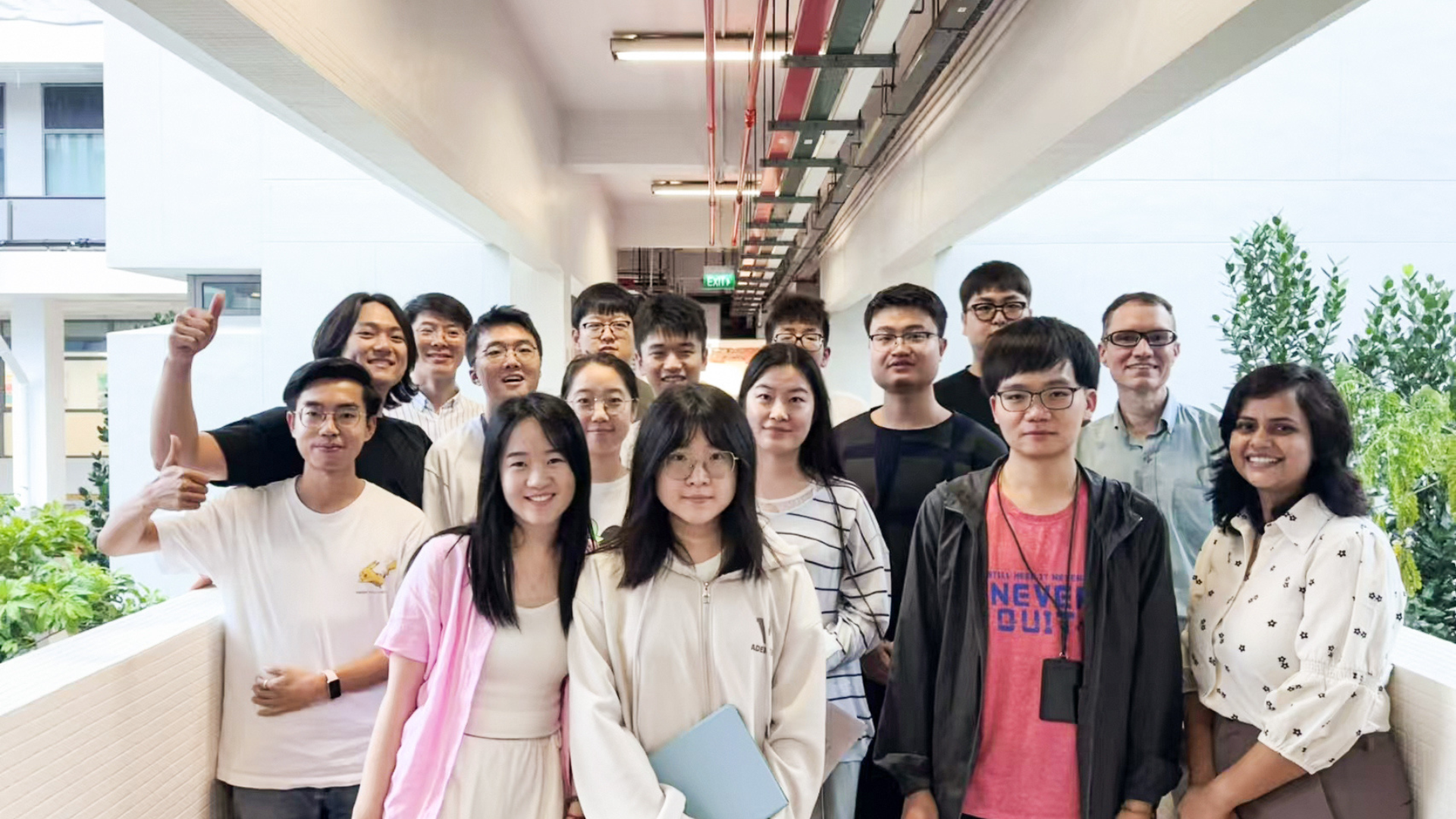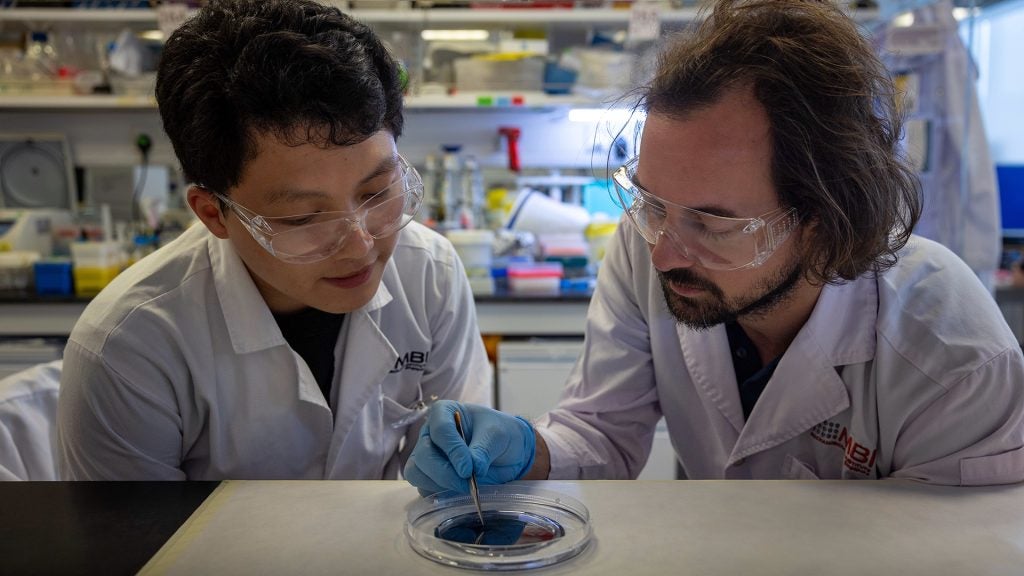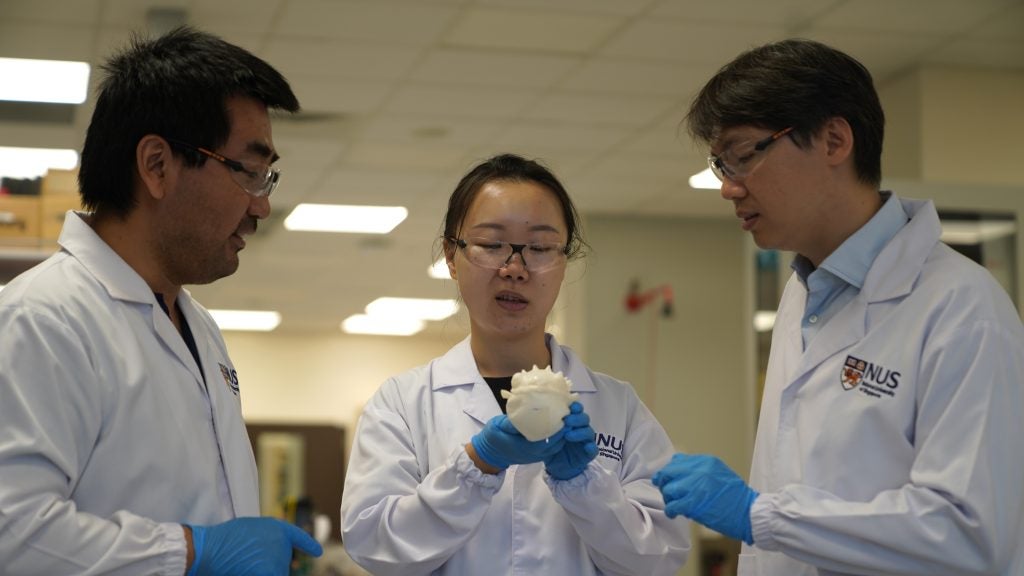
SPIE, the international society for optics and photonics, announced the establishment of the SPIE-CDE Fellowship in Optical Science and Engineering on 27 January 2025 at the SPIE Photonics West conference in San Francisco.
The Fellowship is supported via the SPIE Endowment Matching Program, which was launched in 2019. It aims to enhance global capabilities in optics and photonics research, education and talent pipeline management. The programme offers matching contributions of up to US$500,000 per award to university and college programmes offering degrees in optics and photonics or related fields aligned with the SPIE mission.
The US$1 million endowed fund was formed by a US$500,000 gift from SPIE, matched by a US$500,000 contribution by CDE through the Department of Electrical and Computer Engineering.
"Investing in optical engineering students pursuing their PhDs will have a critical impact on the field, and we are delighted to work with NUS to create exciting opportunities for these students,” said Mr Kent Rochford, SPIE’s CEO.
Noting the potential in the optics and photonics industry in Asia, Associate Professor Aaron Danner (Electrical and Computer Engineering) initiated developing and bringing the Fellowship to CDE.
"We are nowhere close to the physical limits of photonics. Optically-encoded information, just like the visual world around us, is rich and complex,” said Assoc Prof Danner. "Although it’s widely used for data communications, our ability to exploit the power of photonics when it comes to computation is still primitive. "
In his Optical Device Research Group, students participate in various projects related to photonics. Some focus on systems, developing ultra-fast optical chips for photonic computing. Others work with optical materials, growing crystals that can respond optically at frequencies reaching hundreds of gigahertz.
"The future of photonics promises to unravel the deepest mysteries of the universe, from harnessing quantum forces to revolutionizing how we connect, heal, and explore," said Dr Luo Qi, a post-doctoral fellow. "A scholarship in this field is not just a means of support; it’s a gateway to becoming part of something extraordinary, where it empowers the next generation of researchers to shape the future of science and industry."
The endowed fund can also open avenues to explore other emerging areas of photonics, such as artificial intelligence (AI). Mr Wu-Jie Fu, a second-year PhD student, believes that photonics can pave the way in addressing the ever-growing demands of modern AI. He added, "I think the field will become more closely tied to AI, especially in developing underlying photonic accelerators for more sustainable AI. Additionally, AI will back-feed the advancement of photonics."

Professor Biplab Sikdar, Head of the Department of Electrical and Computer Engineering agrees and views this Fellowship as the start of even closer ties with SPIE. “The potential in photonics research is tremendous, with applications in fields ranging from telecommunications to medical technology and from environmental monitoring to advanced manufacturing. We look forward to a closer partnership with SPIE through this Fellowship as we support our students pushing boundaries on research in this field."





